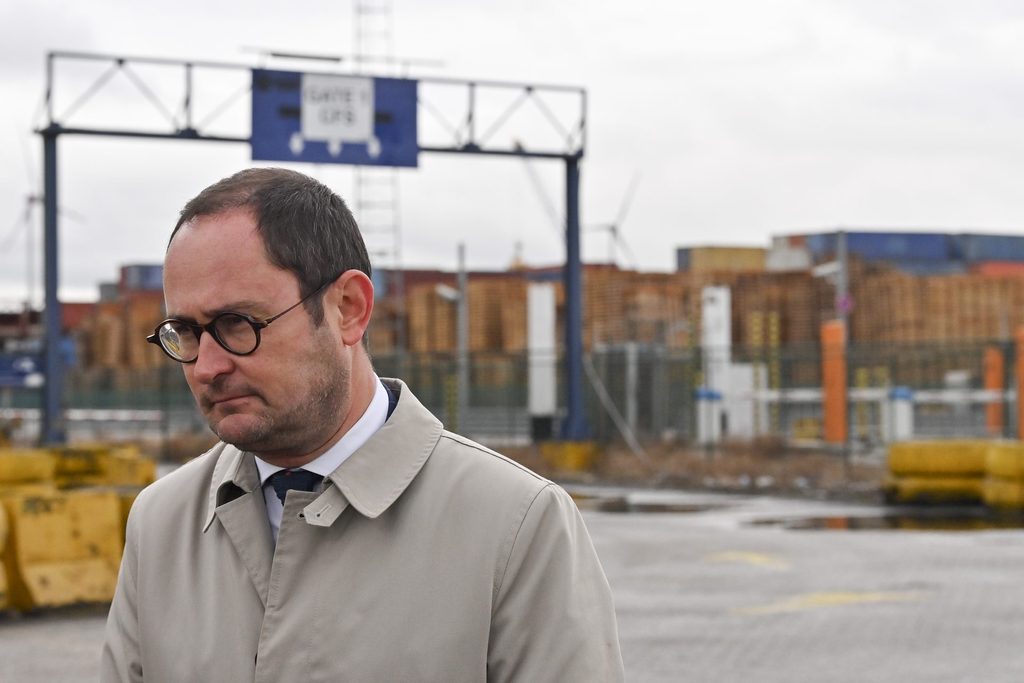A new maritime security law came into effect on Monday with the aim of making ports and ships in Belgium better equipped to tackle rising levels of drug trafficking, notably through the Port of Antwerp.
The law covers Belgium's six ports (Antwerp, Zeebrugge, Ghent, Ostend, Liège and Brussels) and 198 port facilities, with particular attention being paid to the Antwerp Port, which has been heavily targeted by drug gangs.
Minister of Justice and North Sea Minister Vincent Van Quickenborne prepared a new law to tackle organised crime on 1 January, but the royal decree (RD) implementing the law was published last week.
Starting from Monday, the law will not only safeguard ports and ships against drug trafficking but also against the threat of terrorism, foreign interference, economic espionage and cybercrime.
The new law strengthens the Maritime Security Unit within the Directorate General for Navigation. The operation and composition of two Unit levels have been adapted, namely the nine Local Maritime Security Committees on the one hand, and the National Maritime Security Authority (ANSM) on the other.
The law comes amid a rise in drug-related violence, including shootings and bombings, which have been driven by disputes between trafficking gangs that have shaken Antwerp in recent months.
Big six against organised crime
Early last month on 5 June, an international summit on the fight against organised crime took place at the Port House in Antwerp. The meeting of ministers and top officials from Belgium, Germany, France, Italy, the Netherlands and Spain, and resulted in a joint declaration calling for greater European and global cooperation on this issue.
These six European countries already cooperate in the fight against organised crime, but called on the European institutions to do more. "We want to reach very concrete agreements with our European colleagues," said Interior minister Annelies Verlinden.

